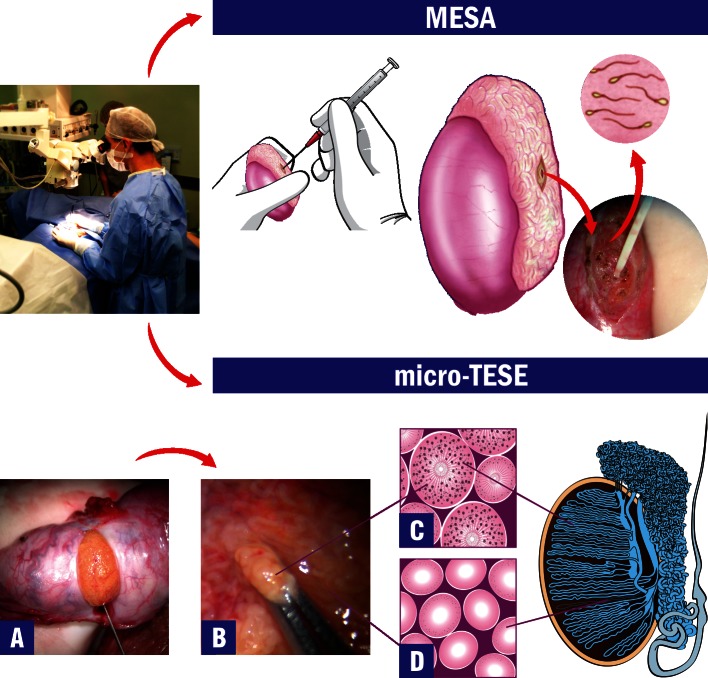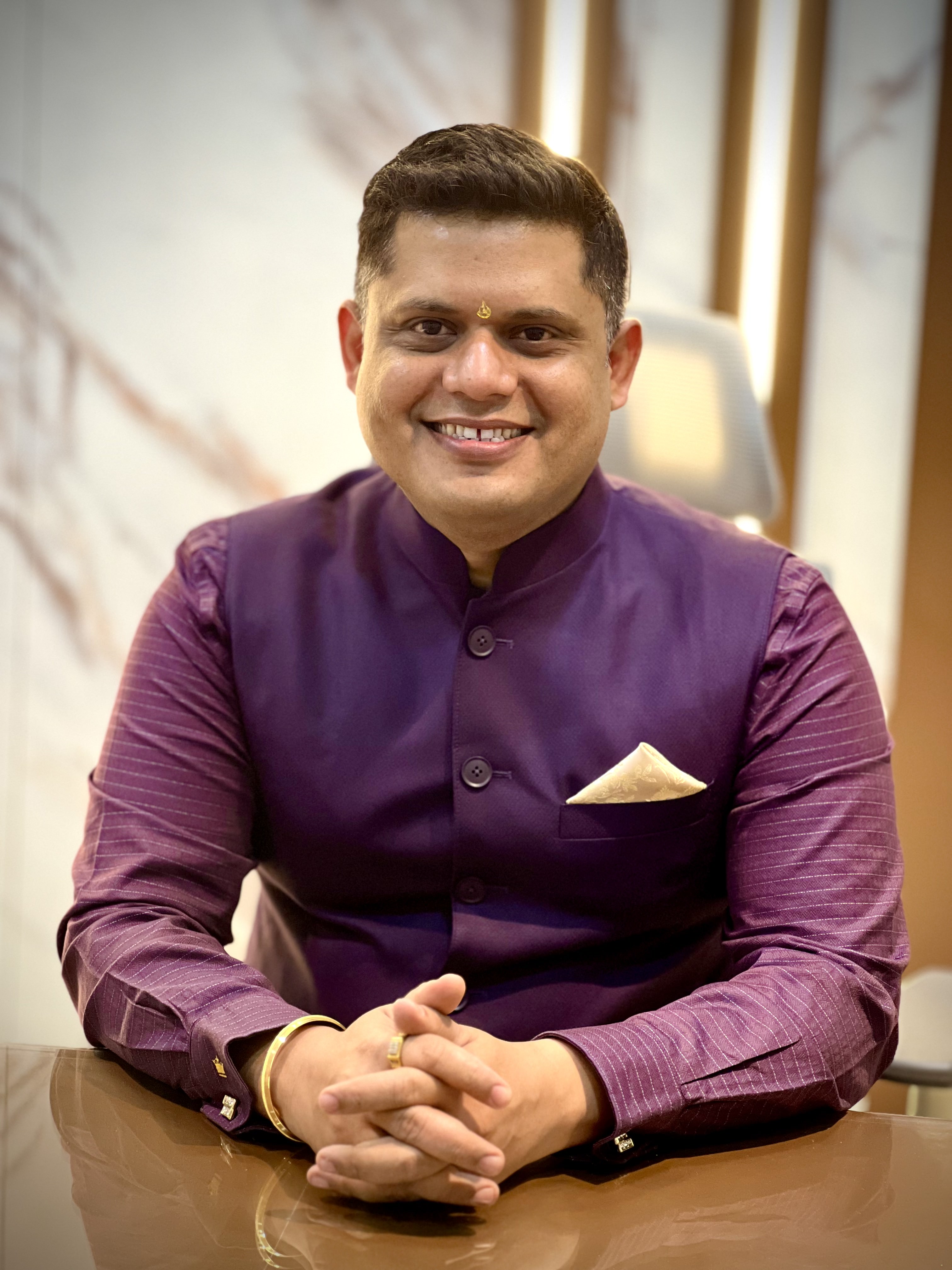Micro-TESA (Microsurgical Testicular Sperm Aspiration)
An advanced microsurgical solution for men with zero sperm count, providing a path to fatherhood.
What is Micro-TESA?
Micro-TESA is a specialized microsurgical procedure performed by Dr. Chinmay Pataki, a leading expert in male infertility. It is the most advanced method for retrieving sperm from the testes in men with Azoospermia (zero sperm count) or extremely low sperm count. Unlike a traditional testicular biopsy, Micro-TESA uses a powerful surgical microscope to carefully identify and extract sperm-producing tubules. This precision minimizes tissue damage and significantly increases the chances of finding viable sperm, giving men the opportunity for biological fatherhood without resorting to donor sperm services.

Who Should Consider Micro-TESA?
Patients with Azoospermia
Micro-TESA is primarily recommended for men diagnosed with Azoospermia, a condition characterized by the absence of sperm in the semen. This includes both obstructive (where sperm production is normal but blocked) and non-obstructive (where sperm production is impaired) cases.
Previous Failed Procedures
Men who have had unsuccessful traditional testicular biopsies (TESE) or epididymal sperm aspiration (PESA) in the past are ideal candidates for Micro-TESA, as its microsurgical precision offers a higher chance of finding viable sperm.
The Micro-TESA Process: What to Expect
This procedure is performed with surgical precision and expertise to ensure the highest chance of success.
1. Consultation & Diagnosis
Your journey begins with a comprehensive consultation with Dr. Chinmay Pataki, who will review your medical history and perform a full diagnostic workup to determine if Micro-TESA is the right option for you.
2. The Microsurgical Procedure
Performed under a high-powered surgical microscope, Dr. Pataki will meticulously search for and retrieve sperm-producing tubules. This precision significantly increases the chances of finding viable sperm.
3. Lab Analysis & Storage
The retrieved tissue samples are immediately sent to our state-of-the-art embryology lab, where our team will identify and, if necessary, freeze the viable sperm for use in an IVF/ICSI cycle.
Success Rates & Factors Affecting Outcomes
Success in Sperm Retrieval
The success of Micro-TESA in retrieving sperm is highly dependent on the type of Azoospermia. It is most effective for men with obstructive Azoospermia and has a high success rate (often 40-60% or more) for non-obstructive cases where sperm production is present, albeit low. Our expert team and advanced surgical microscope give you the best possible chance for a successful retrieval.
Factors that affect the success of retrieval include:
- Type of Azoospermia: Obstructive versus non-obstructive.
- Hormonal Levels: FSH, LH, and testosterone levels.
- Previous Testicular Biopsies: The number and outcome of any prior procedures.
Risks & Limitations of Micro-TESA
While Micro-TESA is a safe procedure, it is important to be aware of the potential risks and limitations. These may include a small chance of bleeding, infection, or discomfort. The main limitation is that it does not guarantee that sperm will be found, especially in cases of severe non-obstructive Azoospermia. However, due to its precision, Micro-TESA is the best option available for a successful retrieval.
Our team believes in complete transparency and will discuss all the risks, benefits, and possibilities with you during your consultation to help you make an informed decision.
Cost of Micro-TESA in Dombivli
The cost of a Micro-TESA procedure can vary depending on several factors. These may include the type of anesthesia used, the duration of the procedure, and whether the retrieved sperm is frozen for future use. It is an investment in your dream of fatherhood, and our team is committed to providing a transparent cost breakdown during your initial consultation.
We understand that cost is a major consideration, and we will work with you to explain every detail, ensuring there are no surprises on your journey.
The Isha Advantage: Why Our Micro-TESA Success Stands Out
As the only hospital in Thane district offering this advanced procedure, our expertise and technology give you the best chance of success.
Advanced Surgical Microscope
We use a dedicated surgical microscope for the procedure, which allows for unparalleled precision in identifying sperm-producing tubules, a significant improvement over traditional methods.
Specialized Expertise
Dr. Chinmay Pataki has received specialized training in male infertility and Micro-TESA from Weill Cornell Medical College, New York, ensuring the highest level of care.
High Success Rates
Our meticulous approach and advanced techniques lead to high sperm retrieval rates, giving you the best possible outcome for your fertility journey.
Holistic Patient Support
We understand the emotional journey of male infertility. Our team provides comprehensive support and guidance every step of the way.
Before Your Consultation: What to Expect
Preparing for your consultation can help you make the most of your time with our specialist. Here's what you can do:
Gather Your Records
Bring all previous medical reports, test results, and a summary of your medical history to provide a complete picture of your health.
Prepare a List of Questions
Feel free to write down any questions you have about the procedure, success rates, risks, and costs. We are here to provide clear and honest answers.
Come with Your Partner
The journey is a shared one. It's often helpful for both partners to attend the consultation to discuss the treatment plan together and get all their questions answered.
Meet Our Founder & Leading Specialist

Dr. Chinmay Pataki
M.D GYNEC, IVF Specialist
Dr. Chinmay Pataki, the founder of Isha Women's Hospital, is a renowned specialist in fertility, gynecologic laparoscopy, and high-risk pregnancies. His journey is marked by excellence, including being a university rank holder and a Gold Medalist in M.D. Gynecology.
He has trained at world-class institutions, including Weill Cornell Medical College in New York for male infertility and Micro-TESA for zero sperm count, and in Germany and Italy for advanced laparoscopic surgeries. With over 10,000+ IVF cycles and 15,000+ laparoscopies to his name, Dr. Pataki's expertise ensures that you are in the most capable hands. He is a true pioneer in reproductive healthcare, dedicated to helping both women and men on their path to parenthood.
Frequently Asked Questions
What is Azoospermia?
Azoospermia is a condition where there is no sperm present in the ejaculate. It is a cause of male infertility that Micro-TESA is designed to address by surgically retrieving sperm directly from the testes.
How is Micro-TESA different from a traditional TESA?
Micro-TESA is a more advanced and precise procedure. It uses a surgical microscope to allow the surgeon to visually identify and retrieve sperm-producing tubules, resulting in a higher success rate with minimal tissue damage and faster recovery compared to a traditional biopsy.
Is the procedure painful?
Micro-TESA is performed under general anesthesia, so you will not feel any pain during the procedure. After the surgery, you may experience some minor discomfort, which can be managed with medication prescribed by our team.
What is the success rate of Micro-TESA?
The success of Micro-TESA depends on the underlying cause of Azoospermia. However, due to its precision, Micro-TESA has a higher success rate of sperm retrieval compared to other methods, often ranging from 40% to 60% or even higher in some cases. Our doctor will provide a personalized estimate based on your specific diagnosis.
Does Micro-TESA guarantee a pregnancy?
Micro-TESA is the first step in the process, aimed at retrieving sperm. Once viable sperm are found, they are used in an IVF cycle with ICSI. The overall success of the pregnancy depends on multiple factors, including egg quality, embryo quality, and the female partner's health.
What happens if no sperm is found during Micro-TESA?
While we use the most advanced techniques to find viable sperm, there is a small possibility that no sperm will be found. In such cases, we will discuss all available options with you and your partner, including the possibility of using donor sperm services.
Is donor sperm the only option if Micro-TESA fails?
If Micro-TESA is unsuccessful, donor sperm is one of the options. However, our team is committed to exploring every possibility and will provide you with all the information and support you need to make the best decision for your family.
How long is recovery after Micro-TESA?
Recovery from Micro-TESA is typically quick. Most patients are able to return to light, non-strenuous activities within a few days. We will provide you with detailed post-operative care instructions to ensure a smooth and speedy recovery.
Hear From Our Happy Families
Ready to Start Your Journey to Fatherhood?
Schedule a consultation with Dr. Chinmay Pataki to discuss your Micro-TESA options and take the first step towards your dream.
Book a Consultation